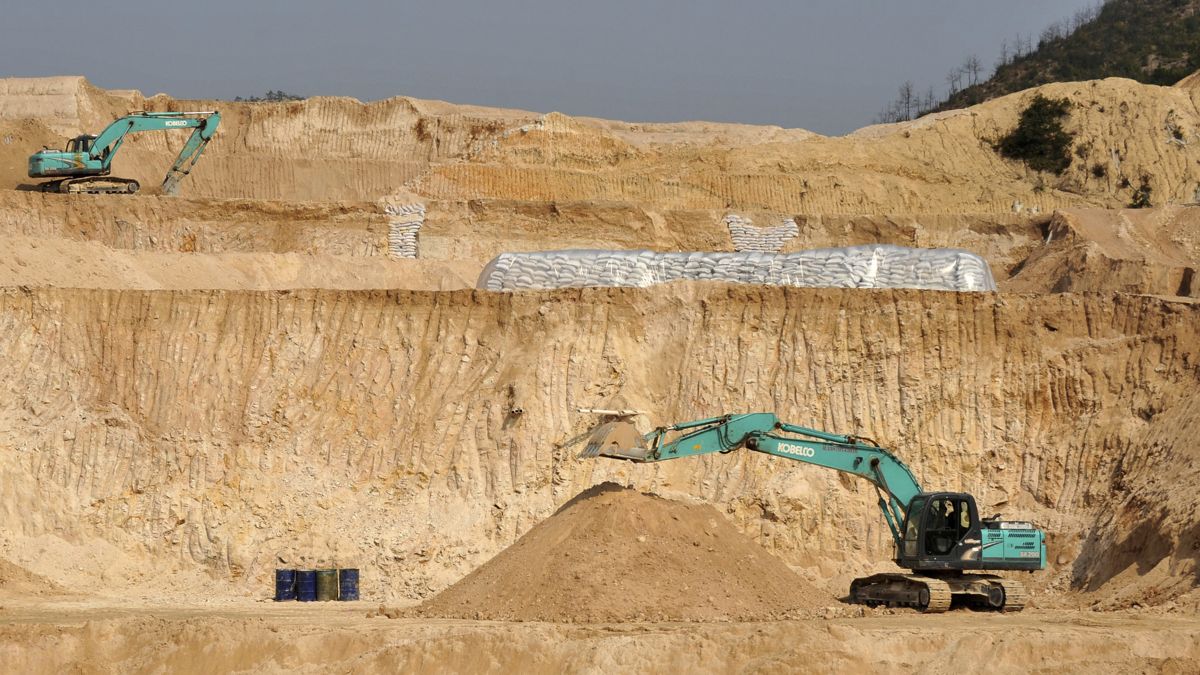The strategic importance of rare earth minerals: China's dominance and global supply chains
 File, Dec 2010: At a rare earth mine in Ganxian county in central China's Jiangxi province | AP
File, Dec 2010: At a rare earth mine in Ganxian county in central China's Jiangxi province | AP
The demand for rare Earth minerals is expected to grow significantly in the years to come. This deems importance as China dominates the globe with maximum market share in the rare earth mineral segment and also has huge reserves of the same.
What are rare earth minerals?
Rare earth minerals have high economic value and are used across industry segments. They are widely used in fighter jets, ballistic missiles, GPS satellites, oil refineries, mobile phones, laptops, nuclear reactors and electric vehicles, to name a few.
The supermagnetic characteristics of the rare earth minerals enable extraordinary miniaturisation of components. Although the amount of rare earths by weight or volume in a device may be small, they play a crucial role in their performance and longevity. These observations were made by the former deputy chief of the Army, Lt Gen. C.A. Krishnan, during a talk and interactive session on rare earths and critical minerals in Bengaluru.
According to him, China dominated the market with 70 percent share in the field, with the US contributing 11 percent and Myanmar 8 percent. “The extraction and separation of rare earth minerals is a very complex procedure and also has environmental challenges. China, from the late 1980s, has maintained a near monopoly in the rare minerals and has diligently established dominance over its entire supply chain,” observed Krishnan.
He further explained that till the 1980s, the Mountain Pass mine in California was the main global source of Rare Earth Minerals. In 1974, it accounted for 19,900 tons, 78 per cent of global production. However, in a democratic setup such as the United States, it ran into environmental issues and its production plunged to a third of global output by 1992 and further to a mere 5 per cent by 2002.
The Mountain Pass mine, operating at its full capacity in the 1990s, produced every minute 850 gallons of salty waste containing traces of radioactive material. Occasional spilling of this waste into the desert was also reported. California State ordered the cleaning up of the waste. In 2002, the already struggling ‘Molycorp’ ran out of space to store Mountain Pass waste and as a result, the mine had to be closed down.
Krishnan pointed out that in the 1990s, China acquired Magnequench, a General Motors subsidiary, which was making rare-earth permanent magnets in the US and immediately on expiry of the restrictive conditions stipulated in the contract in 2002, all assets of Magnequench were moved to China by its new owners. H also observed that minerals such as Lithium, Nickel, Cobalt, Copper, Silicon, Germanium, Gallium etc, are essential for modern industries and are also the pillars of Green energy and related industries.
He remarked that most countries have identified a set of minerals as critical minerals based on their high economic and national security concerns and supply chain criticality. For instance, the European Union has a list of 34 such minerals identified as rare minerals, the US has 50 such minerals and India has listed 30. Rare earths and the green tech minerals are in the critical list of most countries.
The former deputy Army chief also opines that the global community needs to adopt a collaborative approach. Countries which have the upstream ore resources, those with technology for refining the rare earth ores and manufacturing high-tech downstream products must come together and evolve a joint model.
Renewed efforts aimed at exploring new sources of rare Earth minerals worldwide and searching for alternative materials as substitutes for them must form part of this effort. Research must also focus on sustainable mining and refining processes, as well as on more efficient use of rare Earth minerals and efficient recycling methods.
Interestingly, he also highlighted the projected GDP trajectory of India and the huge spike in energy demand that a country like India is set to witness. Members of Asia Centre, Bangalore, former diplomats, defence services officers, prominent members from the mining and mineral industry, faculty members and students participated in the session.
Sci/Tech